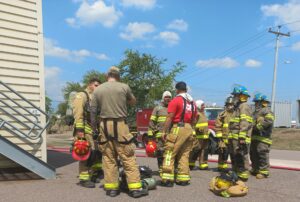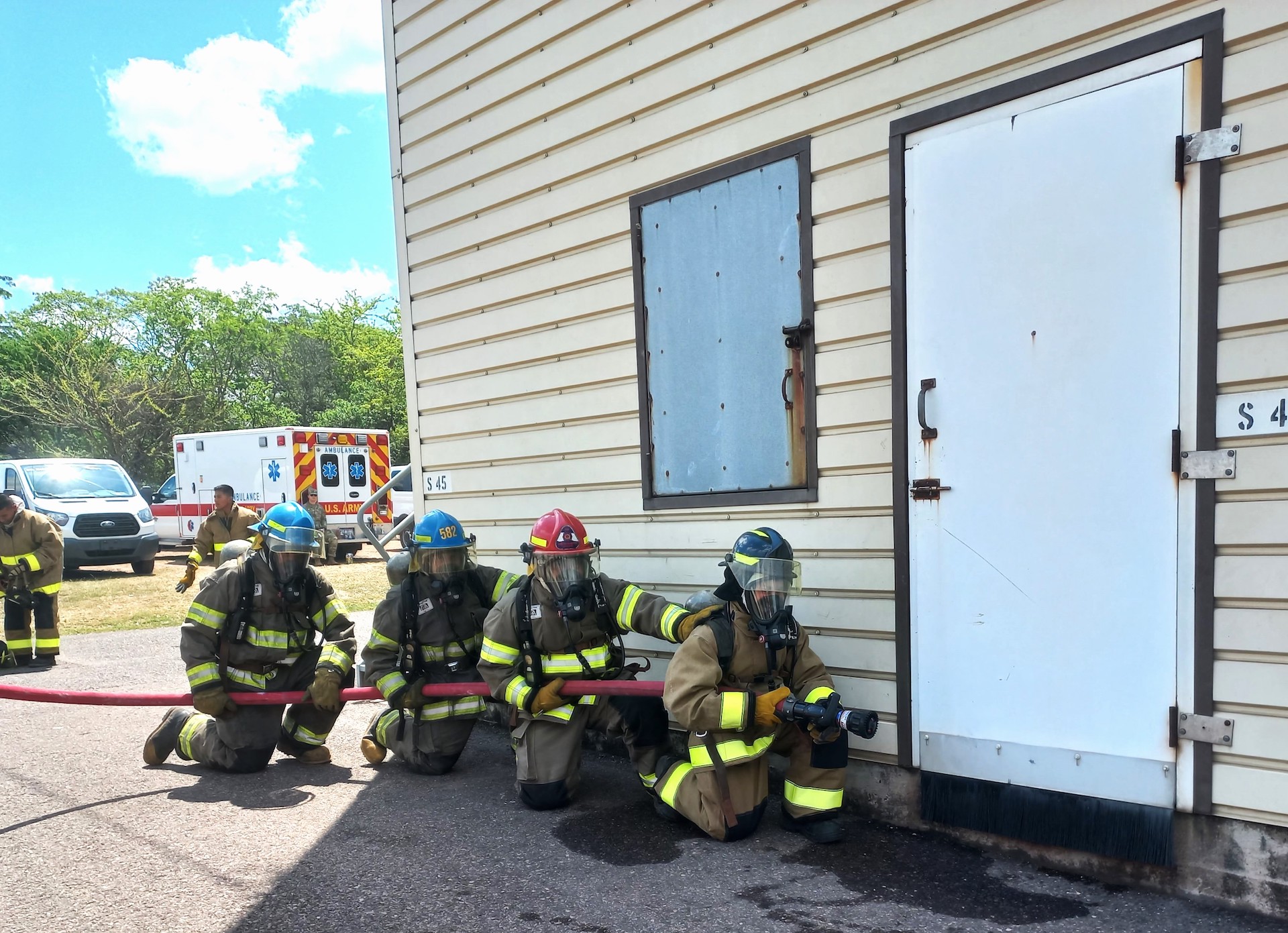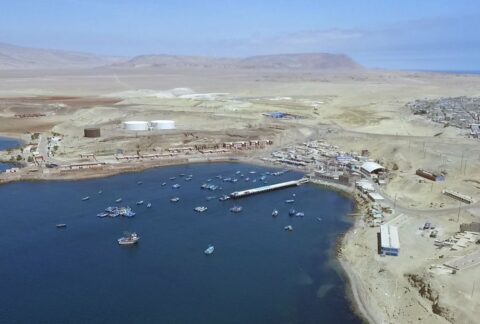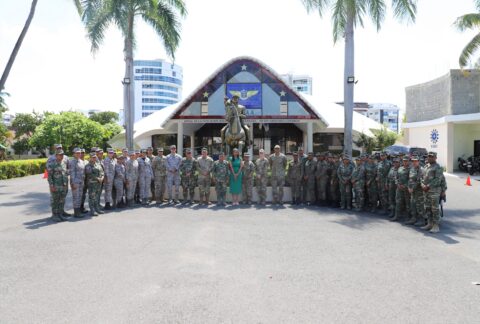The Central America Sharing Mutual Operational Knowledge and Experiences (CENTAM SMOKE) exercise, which brought together military rescuers and professional firefighters from five countries for firefighting and disaster response training, was carried out at the Manuel Soto Cano Air Base in Comayagua, Honduras, headquarters of Joint Task Force Bravo (JTF-Bravo), March 27-31.
Twenty four service members from Colombia, El Salvador, Honduras, Guatemala, and Jamaica shared their knowledge and learned new techniques from instructors from the 612th Air Base Squadron, which provides air base support to JTF-Bravo.
For U.S. Air Force Lieutenant Colonel Laura Chávez, JTF-Bravo deputy commander, this was an excellent experience because it allowed firefighters to share knowledge, and work as a team. “When we prepare before an event [catastrophe] and we have to respond, we already know each other so we can support and send help more quickly,” Lt. Col. Chávez said.
Lt. Col. Chávez highlighted that the exercise included firefighters with more than two decades of experience, making this exchange a great opportunity to share and learn skills.
Porfirio Ernesto Hernández, based at the San Miguel fire station in El Salvador, was the most experienced firefighter to take part in this edition of CENTAM SMOKE. Although he has been extinguishing fires, providing humanitarian aid, and bringing support during various catastrophes and disasters for 24 years, it was the first time he participated in the exercise and shared his knowledge with other Central American professionals.
Hernández and his teammate were the only civilian firefighters in the exercise. “We are here to share experiences and learn how other countries work and share knowledge with others who are just starting out in this career,” Hernández said.
Fifteen years of training
“Created as CENTAM SMOKE in 2007, this exercise was held four times a year and was reduced to two annual trainings years later. We used to use helicopters, but now we train with simulators,” said JTF-Bravo Fire Inspector Herberth Gaekel.
Part of JTF-Bravo’s mission with CENTAM-SMOKE is to improve the capabilities of regional emergency groups, and to optimize operational readiness for rapid response in the event of natural and man-made disasters.
The equipment and investment for the training are provided by JTF-Bravo. The current fire simulator, Gaekel said, cost $800,000, and there are plans to acquire new equipment valued at about $1 million, he added. The old simulator will be donated to a fire station, which has yet to be determined.
For Gaekel, the Honduran Armed Forces had an outstanding case in 23-year-old Private First Class Génesis Rocio Figueroa Cruz of the Ecosystem and Environmental Management Support Command, who despite her thin frame showed enormous courage and will by pulling out a 75-kilogram mannequin during a fire drill exercise.
“I didn’t know what I was facing, and it was an exciting experience. Women can demonstrate that we can accomplish any obstacle in our lives,” said Pfc. Figueroa.

Jamaica and Colombia
Instructors from the 612th Air Base Squadron have been training firefighters from the Central American region for 15 years. In 2023, Colombia and Jamaica joined the exercise for the first time.
Colombian Army Major General Helberth S. Gutiérrez credited participants and instructors for the newly acquired knowledge and experiences. “There were five extreme days of training where body and mind were put to the test, where the physical capability of the firefighter is pushed to the limit — in an emergency situation the will has to prevail over the mind,” he said.
His teammate, Colombian Air Force Senior Airman Eduardo Roberto Roa, agreed that they had a great opportunity to practice in real scenarios thanks to the structural fire simulators, aircraft, and other equipment.
“This is one of the great advantages of the training, since we do not have [these simulators] in our country. Another advantage is to know how other countries operate in cases of emergency, or when they need humanitarian aid where the Colombian government can participate,” Senior Airman Roa said.
“We feel motivated; we feel that we did a good job and that each of the participants gave their best equally,” Maj. Gen. Gutiérrez concluded.









